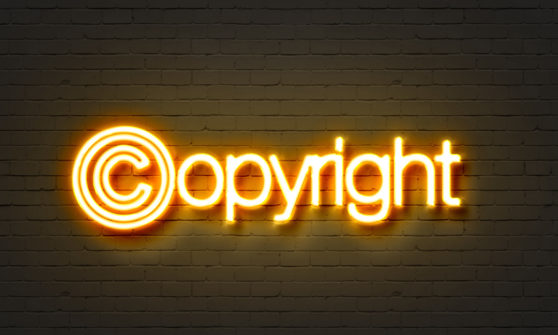How to Avoid Copyright Infringement Online

Whether you’re setting up a website or creating content, it’s important to avoid copyright infringement. What may seem like harmless borrowing can have hefty legal repercussions.
Even if done unintentionally, using someone else’s material can result in copyright penalties against you.
Luckily, there are ways to avoid breaking copyright rules. If you have any type of online presence, keep reading to find ways to protect yourself from infringing on copyrighted material.
Understanding Copyright Rules
To avoid accidentally committing copyright infringement on your website, it’s important to understand what the rules actually are. Copyright infringement occurs when copyrighted material is used without permission from the owner.
Using someone else’s content without their explicit permission is considered copyright infringement. For example, a musician uses a copyrighted beat in his song. He did not get permission from the creator, so that would be infringing on copyrighted material.
The typical internet user is more apt to use an image or song on their website without getting permission from the creator. Even if done innocently, this is still illegal.
There are, however, exemptions to this. For example, creating news reports and incorporating copyrighted material falls under fair use. Similarly, criticisms or commentaries about materials are generally protected.
Knowing what copyright laws are is one of the most effective ways to avoid getting hit with a hefty copyright infringement notice. Similarly, if you see someone using your original content, you can report copyright infringement.
How to Avoid Copyright Infringement
If you’re not sure if you can use an image, you most likely can’t. Even content from less-popular websites is protected by laws. The best way to steer clear of copyright penalties is to avoid using work that you didn’t create.
Digitally altering or manipulating content that you found online also counts as infringement. You did not create the original content, so the alteration is not considered your original creation.
One of the easiest ways to incorporate others’ material into your work is to use free content. Consider using free stock images to add personality to your website. This free-use content is a great way to prevent copyright claims.
Asking for permission from the creator is also a great way to avoid getting hit with a penalty. If they give you explicit permission to use their work, you’re good to go!
Another surefire way to ensure the content you use is original is to create it yourself or hire someone to create it for you.
Keep Your Website in the Clear
The internet is full of cool, interesting content. It can be tempting to borrow images or music you find online. But, whether intentional or not, there can be extreme consequences.
Make sure to follow the copyright rules for online content regardless of what you are doing on the internet.
If you found this article helpful, be sure to check out the rest of our blog for more great content to help you navigate the digital world.
Whether you’re setting up a website or creating content, it’s important to avoid copyright infringement. What may seem like harmless borrowing can have hefty legal repercussions.
Even if done unintentionally, using someone else’s material can result in copyright penalties against you.
Luckily, there are ways to avoid breaking copyright rules. If you have any type of online presence, keep reading to find ways to protect yourself from infringing on copyrighted material.
Understanding Copyright Rules
To avoid accidentally committing copyright infringement on your website, it’s important to understand what the rules actually are. Copyright infringement occurs when copyrighted material is used without permission from the owner.
Using someone else’s content without their explicit permission is considered copyright infringement. For example, a musician uses a copyrighted beat in his song. He did not get permission from the creator, so that would be infringing on copyrighted material.
The typical internet user is more apt to use an image or song on their website without getting permission from the creator. Even if done innocently, this is still illegal.
There are, however, exemptions to this. For example, creating news reports and incorporating copyrighted material falls under fair use. Similarly, criticisms or commentaries about materials are generally protected.
Knowing what copyright laws are is one of the most effective ways to avoid getting hit with a hefty copyright infringement notice. Similarly, if you see someone using your original content, you can report copyright infringement.
How to Avoid Copyright Infringement
If you’re not sure if you can use an image, you most likely can’t. Even content from less-popular websites is protected by laws. The best way to steer clear of copyright penalties is to avoid using work that you didn’t create.
Digitally altering or manipulating content that you found online also counts as infringement. You did not create the original content, so the alteration is not considered your original creation.
One of the easiest ways to incorporate others’ material into your work is to use free content. Consider using free stock images to add personality to your website. This free-use content is a great way to prevent copyright claims.
Asking for permission from the creator is also a great way to avoid getting hit with a penalty. If they give you explicit permission to use their work, you’re good to go!
Another surefire way to ensure the content you use is original is to create it yourself or hire someone to create it for you.
Keep Your Website in the Clear
The internet is full of cool, interesting content. It can be tempting to borrow images or music you find online. But, whether intentional or not, there can be extreme consequences.
Make sure to follow the copyright rules for online content regardless of what you are doing on the internet.
If you found this article helpful, be sure to check out the rest of our blog for more great content to help you navigate the digital world.